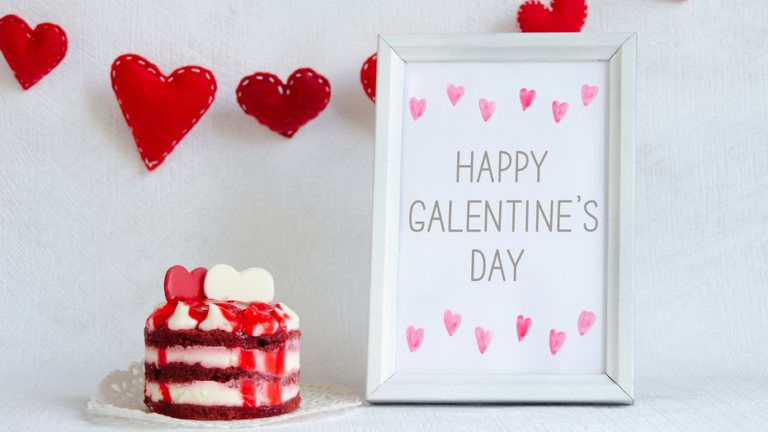
The ladies of “The View” have long fueled panic politics to support a Democratic hold on power in Washington. That includes dystopian predictions of an American Third Reich if Donald Trump were elected. Much of this hysteria has been fostered by host Whoopi Goldberg, who told ABC viewers how Trump is already committed to being a dictator who will “put you people away … take all the journalists … take all the gay folks … move you all around and disappear you.”
Such fear-mongering is the lowest form of political discourse, but neither Goldberg nor ABC is legally liable for dispensing with any journalistic or ethical standards. That may not be the case with regard to Goldberg’s most recent rant targeting a local New York bakery. Some have said that the fact that Goldberg did not name Holtermann’s Bakery means she cannot be sued. That is wrong.
WHOOPI GOLDBERG CLAIMS BAKERY REFUSED HER SERVICE OVER HER LEFTIST VIEWS
On the program last week, Goldberg portrayed herself as an early victim of the backlash against Trump critics when she was denied an order of Charlotte Russe cakes.
Goldberg stated ominously, “Now, I should tell you, Charlotte Russe has no political leanings, and the place that made these refused to make them for me.” With that line, one of the co-hosts, Sara Haines, spit out the cake in her mouth as the other hosts expressed horror.
Goldberg, who wound up getting the cakes after all, continued:
“They said that their ovens had gone down, but folks went and got them anyway, which is why I’m not telling you who made them. It’s not because I’m a woman, but perhaps they did not like my politics. But that’s okay because you know what? Listen, this is my mother’s celebration. Pick these up and celebrate with me and my mom. Thank you, everyone, for celebrating my birthday today.”
WHAT IS A CHARLOTTE RUSSE CAKE? DESSERT’S SURPRISING HISTORY
Her co-hosts and the audience were clearly appalled that Goldberg would be the victim of political retaliation. It was all the more horrifying and contemptible that she was trying to obtain the cakes to celebrate her 69th birthday on-air. It was a scene right out of “Apocalypse Now.”
While she pointedly said that she would not name the bakery, it took little time for people to deduce that it was Holtermann’s Bakery on Staten Island, given that its signature Charlotte Russe cakes are a legend in New York.
The fact is that the ovens did go down. The establishment’s aging boiler could not make it to its own’s 67th birthday. After all, it was installed when Goldberg was just a kid.
The bakery stopped taking orders until it could get a working boiler. The alternative was to leave people like Goldberg without cakes for their special events.
Staten Island Borough President Vito Fossella immediately accused Goldberg of defamation.
“Recently someone took to the national airwaves and defamed, frankly, this family business,” the Republican said. “We’re here to stand up for one of the best families and businesses, not just in Staten Island but in the country.”
There are two reasons cited for why Goldberg cannot be sued. Her refusal to name the bakery (which she portrayed as a way of denying them favorable publicity since they eventually got the cakes) and that she used the word “perhaps” in her accusation.
The Name Game
The failure to name a party in an otherwise defamatory context is not a defense to defamation.
The strongest and easiest cases to make on defamation are those fitting into a “per se” category of defamation like calling someone falsely a criminal or the carrier of an infectious disease. Damages in such cases are often presumed.
Other cases are called “per quod” cases, where the harm and damages are not immediately evident or presumed. Rather than be libelous on their face, per quod cases must often be proven through use of extrinsic facts or evidence. In such cases, you need to prove special damages.
It is worth noting that the implied accusation against the bakery could fit into a per se category of impugning business or professional integrity. Goldberg’s statement was clearly meant to impugn the reputation and professional standing of the bakery. It can be argued as defamatory per se by implication.
The fact that Goldberg identified the bakery only as a local bakery associated with these cakes is not a defense. The identity of the bakery was quickly deduced and published widely.
“Perhaps” Defamation
Goldberg could also claim that using the word “perhaps” reduced the statement to a mere opinion. This is a common misunderstanding. Often, people will say “in my opinion” and then follow with a defamatory statement. It is not treated as an opinion if it is stated as a fact.
Clearly, a statement of opinion alone is not actionable when “the facts on which they are based are fully and accurately set forth and it is clear . . . that the accusation is merely a personal surmise built upon those facts.” Gross v. New York Times Co., 623 N.E.2d 1163, 1169 (N.Y. 1993).
New York courts look to whether a reasonable person would consider the statement to be conveying a fact. Davis v. Boeheim, 22 N.E.3d 999, 1005 (N.Y. 2014). Moreover, “[r]ather than sifting through a communication for the purpose of isolating and identifying assertions of fact, the court should look to the over-all context in which the assertions were made,” including the forum, to determine how a reasonable reader would view them.” Brian v. Richardson, 660 N.E.2d 1126, 1130 (N.Y. 1995).
Moreover, “an opinion that implies that it is based upon facts which justify the opinion but are unknown to those reading or hearing it… is a mixed opinion” and is actionable. Bacon v Nygard, 189 A.D.3d 530, 530 (1st Dept 2020).
Goldberg was clearly trying to convey that the bakery imposes a political litmus test or engages in politically discriminatory practices against Democrats, Trump critics, or liberals. That can have an obviously harmful impact on business for the family-owned bakery.
Even if the bakery had to show malice (of a knowing falsehood or reckless disregard of the truth), it would have a cognizable basis for such a claim against Goldberg and ABC.
It would not be the first time that they had to make such a correction, and the audience of “The View” does not appear to care about such false or unsupported claims.
CLICK HERE FOR MORE FOX NEWS OPINION
In one such incident, Turning Point USA issued a cease and desist letter to ABC after the hosts suggested that it allowed neo-Nazis to join an event. In discussing Turning Point USA’s summit in Florida, host Joy Behar said, “Neo-Nazis were out there in the front of the conference with antisemitic slurs and … the Nazi swastika and a picture of a so-called Jewish person with exaggerated features, just like Goebbels did during the Third Reich. It’s the same thing, right out of the same playbook.”
Whoopi Goldberg, then added, in reference to Turning Point USA, “you let them in, and you knew what they were, so you are complicit.”
ABC then had the hosts issue an on-air apology. However, they had host Sara Haines do it: “We want to make clear that these demonstrators were outside the event and that they were not invited or endorsed by Turning Point USA.” She added, “the hosts apologize for “anything we said that may have been unclear on these points.”
Obviously, it would be up to a jury to balance the earlier standards and the evidence in this case. However, a case could be made for defamation and a court could find that the matter should be left to the fact finder at trial. Goldberg and ABC would be wise to apologize on the air to the bakery on Monday.
CLICK HERE TO READ MORE FROM JONATHAN TURLEY
The ladies of “The View” have long fueled panic politics to support a Democratic hold on power in Washington. That includes dystopian predictions of an American Third Reich if Donald Trump were elected. Much of this hysteria has been fostered by host Whoopi Goldberg, who told ABC viewers how Trump is already committed to being a dictator who will “put you people away … take all the journalists … take all the gay folks … move you all around and disappear you.”
Such fear-mongering is the lowest form of political discourse, but neither Goldberg nor ABC is legally liable for dispensing with any journalistic or ethical standards. That may not be the case with regard to Goldberg’s most recent rant targeting a local New York bakery. Some have said that the fact that Goldberg did not name Holtermann’s Bakery means she cannot be sued. That is wrong.
WHOOPI GOLDBERG CLAIMS BAKERY REFUSED HER SERVICE OVER HER LEFTIST VIEWS
On the program last week, Goldberg portrayed herself as an early victim of the backlash against Trump critics when she was denied an order of Charlotte Russe cakes.
Goldberg stated ominously, “Now, I should tell you, Charlotte Russe has no political leanings, and the place that made these refused to make them for me.” With that line, one of the co-hosts, Sara Haines, spit out the cake in her mouth as the other hosts expressed horror.
Goldberg, who wound up getting the cakes after all, continued:
“They said that their ovens had gone down, but folks went and got them anyway, which is why I’m not telling you who made them. It’s not because I’m a woman, but perhaps they did not like my politics. But that’s okay because you know what? Listen, this is my mother’s celebration. Pick these up and celebrate with me and my mom. Thank you, everyone, for celebrating my birthday today.”
WHAT IS A CHARLOTTE RUSSE CAKE? DESSERT’S SURPRISING HISTORY
Her co-hosts and the audience were clearly appalled that Goldberg would be the victim of political retaliation. It was all the more horrifying and contemptible that she was trying to obtain the cakes to celebrate her 69th birthday on-air. It was a scene right out of “Apocalypse Now.”
While she pointedly said that she would not name the bakery, it took little time for people to deduce that it was Holtermann’s Bakery on Staten Island, given that its signature Charlotte Russe cakes are a legend in New York.
The fact is that the ovens did go down. The establishment’s aging boiler could not make it to its own’s 67th birthday. After all, it was installed when Goldberg was just a kid.
The bakery stopped taking orders until it could get a working boiler. The alternative was to leave people like Goldberg without cakes for their special events.
Staten Island Borough President Vito Fossella immediately accused Goldberg of defamation.
“Recently someone took to the national airwaves and defamed, frankly, this family business,” the Republican said. “We’re here to stand up for one of the best families and businesses, not just in Staten Island but in the country.”
There are two reasons cited for why Goldberg cannot be sued. Her refusal to name the bakery (which she portrayed as a way of denying them favorable publicity since they eventually got the cakes) and that she used the word “perhaps” in her accusation.
The Name Game
The failure to name a party in an otherwise defamatory context is not a defense to defamation.
The strongest and easiest cases to make on defamation are those fitting into a “per se” category of defamation like calling someone falsely a criminal or the carrier of an infectious disease. Damages in such cases are often presumed.
Other cases are called “per quod” cases, where the harm and damages are not immediately evident or presumed. Rather than be libelous on their face, per quod cases must often be proven through use of extrinsic facts or evidence. In such cases, you need to prove special damages.
It is worth noting that the implied accusation against the bakery could fit into a per se category of impugning business or professional integrity. Goldberg’s statement was clearly meant to impugn the reputation and professional standing of the bakery. It can be argued as defamatory per se by implication.
The fact that Goldberg identified the bakery only as a local bakery associated with these cakes is not a defense. The identity of the bakery was quickly deduced and published widely.
“Perhaps” Defamation
Goldberg could also claim that using the word “perhaps” reduced the statement to a mere opinion. This is a common misunderstanding. Often, people will say “in my opinion” and then follow with a defamatory statement. It is not treated as an opinion if it is stated as a fact.
Clearly, a statement of opinion alone is not actionable when “the facts on which they are based are fully and accurately set forth and it is clear . . . that the accusation is merely a personal surmise built upon those facts.” Gross v. New York Times Co., 623 N.E.2d 1163, 1169 (N.Y. 1993).
New York courts look to whether a reasonable person would consider the statement to be conveying a fact. Davis v. Boeheim, 22 N.E.3d 999, 1005 (N.Y. 2014). Moreover, “[r]ather than sifting through a communication for the purpose of isolating and identifying assertions of fact, the court should look to the over-all context in which the assertions were made,” including the forum, to determine how a reasonable reader would view them.” Brian v. Richardson, 660 N.E.2d 1126, 1130 (N.Y. 1995).
Moreover, “an opinion that implies that it is based upon facts which justify the opinion but are unknown to those reading or hearing it… is a mixed opinion” and is actionable. Bacon v Nygard, 189 A.D.3d 530, 530 (1st Dept 2020).
Goldberg was clearly trying to convey that the bakery imposes a political litmus test or engages in politically discriminatory practices against Democrats, Trump critics, or liberals. That can have an obviously harmful impact on business for the family-owned bakery.
Even if the bakery had to show malice (of a knowing falsehood or reckless disregard of the truth), it would have a cognizable basis for such a claim against Goldberg and ABC.
It would not be the first time that they had to make such a correction, and the audience of “The View” does not appear to care about such false or unsupported claims.
CLICK HERE FOR MORE FOX NEWS OPINION
In one such incident, Turning Point USA issued a cease and desist letter to ABC after the hosts suggested that it allowed neo-Nazis to join an event. In discussing Turning Point USA’s summit in Florida, host Joy Behar said, “Neo-Nazis were out there in the front of the conference with antisemitic slurs and … the Nazi swastika and a picture of a so-called Jewish person with exaggerated features, just like Goebbels did during the Third Reich. It’s the same thing, right out of the same playbook.”
Whoopi Goldberg, then added, in reference to Turning Point USA, “you let them in, and you knew what they were, so you are complicit.”
ABC then had the hosts issue an on-air apology. However, they had host Sara Haines do it: “We want to make clear that these demonstrators were outside the event and that they were not invited or endorsed by Turning Point USA.” She added, “the hosts apologize for “anything we said that may have been unclear on these points.”
Obviously, it would be up to a jury to balance the earlier standards and the evidence in this case. However, a case could be made for defamation and a court could find that the matter should be left to the fact finder at trial. Goldberg and ABC would be wise to apologize on the air to the bakery on Monday.



